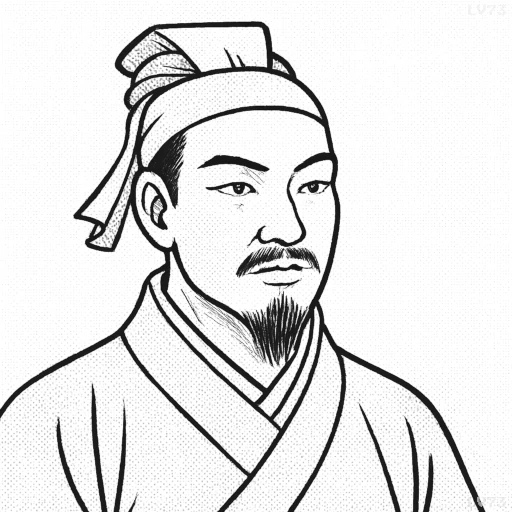“Hence the saying: If you know the enemy and you know yourself, your victory will not stand in doubt; if you know Heaven and you know Earth, you may make your victory complete.”

- 544 BC-496 BC
- Born in China
- Military strategist, military strategist
table of contents
Quote
“Hence the saying: If you know the enemy and you know yourself, your victory will not stand in doubt; if you know Heaven and you know Earth, you may make your victory complete.”
Explanation
In this quote, Sun Tzu builds upon his earlier ideas about the importance of self-awareness and understanding the enemy in warfare. By emphasizing the need to understand both your own forces and the enemy’s capabilities, Sun Tzu argues that success is almost assured. However, he expands this concept by introducing the idea of understanding the broader context of the battle, represented by Heaven (natural conditions, timing) and Earth (terrain, geography). The message is that knowledge is not limited to one’s immediate forces or opponents, but extends to the larger factors that influence the outcome. Sun Tzu stresses that a leader’s ability to evaluate all aspects of the battlefield, from the physical terrain to the timing of actions, can ensure a complete and decisive victory.
This principle has far-reaching applications in modern warfare, business strategy, and political decisions. In military strategy, understanding the environment and weather conditions can be just as important as understanding the enemy’s forces. For example, during World War II, the weather played a key role in the failure of Operation Barbarossa, where Nazi Germany’s invasion of the Soviet Union was stalled due to the harsh Russian winter. In business, companies that understand both their own strengths and weaknesses, as well as the market conditions (or “Heaven and Earth”), are more likely to succeed. For instance, companies like Tesla have been able to dominate the electric vehicle market by not only understanding consumer needs but also the broader environmental trends favoring sustainable energy. In politics, understanding both the internal dynamics of one’s country and the external geopolitical landscape can help a leader navigate complex international relations. Sun Tzu’s assertion that a victory is only complete when all factors are understood and strategically leveraged is still central to strategic thinking today.
Historically, great leaders have relied on knowledge of both their forces and external factors to achieve success. Alexander the Great was famous for his knowledge of both his own army’s capabilities and the terrain of the regions he conquered, allowing him to win crucial battles such as the Battle of Gaugamela. Similarly, Napoleon Bonaparte’s ability to understand both his army’s strengths and the political and environmental context of his campaigns contributed to his numerous victories. During the American Civil War, Abraham Lincoln understood both the internal state of the Union and the broader political and social currents, which helped him steer the country toward victory. The idea that success in any conflict or challenge requires comprehensive knowledge of all factors—people, environment, timing, and context—remains a timeless principle in achieving not just victory, but sustained success.
Would you like to share your impressions or related stories about this quote in the comments section?

